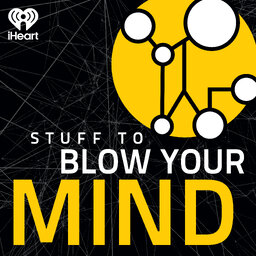If a tree falls in a forest, does it make a sound?
If a tree falls in an empty forest, does it make a sound? Originally this question was made for meditative purposes, but answering the question incorporates several fascinating ideas about human perception and psychology. Tune in to learn more.
Learn more about your ad-choices at https://www.iheartpodcastnetwork.com
In 1 playlist(s)
Stuff To Blow Your Mind
Deep in the back of your mind, you’ve always had the feeling that there’s something strange about re…Social links
Follow podcast
Recent clips

Crab Bag, Part 2: It’s Raining Crabs (Hallelujah)
44:24

The Monstrefact: Marvel’s Squirrel Girl
04:27

Crab Bag, Part 1: The Crabs are Back In Town
54:40
 Stuff To Blow Your Mind
Stuff To Blow Your Mind